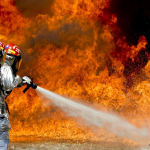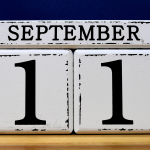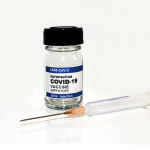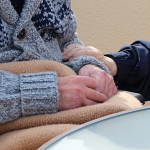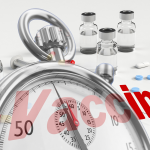For regulatory science, from Covid-19 to environmental regulations, today’s mantra is to “follow the science.” If only we had more and better science, they exclaim, we would know the correct answers and better protect public health. But “more” and “better science” often result in the opposite effect – i.e., less protection of public health. By trying to do “perfect science,” we often get in the way of good results in the protection of public health.
Harm Reduction
"... the public in these areas are not being exposed to excessive levels of asbestos or other harmful substances … Given the scope of the tragedy from last week, I am glad to reassure the people of New York and Washington, D.C., that their air is safe to breathe, and their water is safe to drink."
Christine Todd Whitman, EPA Administrator, Sept. 2001
Medical imaging requires patients to be injected with or drink a radionuclide that can be “imaged” to show various organs and dysfunction. For the time that the radionuclide remains in your system (it is urinated out within a day or so), you are radioactive. According to the Health Physics Society, “our bodies are naturally radioactive, because we eat, drink, and breathe radioactive substances that are naturally present in the environment.”
Remember when we all had to turn our cellphones off when planes took off and landed? How about turning them off around medical equipment? It turns out that when we look for something radiating out of cellphones that might harm us, we might consider magnetism.
Why is so much attention being given to those who refused to get vaccinated? Why would someone trade the safe harbor of vaccination for the risk of death from COVID-19 and its variants in the tradeoff calculus?
1.4 million or 2% of Medicare beneficiaries reside in nursing homes – the burning center of the COVID-19 morbidity and mortality before vaccines. The Centers for Medicare and Medicaid Services (CMS) report how those beneficiaries fared between March and December of 2020. Let’s review the carnage.
48 of the 50 states allow some form of legal cannabis sale and use, the exceptions Nebraska and Idaho. 31 states have decriminalized its use. At last count, 17 states are allowing recreational sales. The feds continue to maintain it as a Schedule 1 drug, its possession punishable by up to a year in jail and a minimum fine of $5,000.
Last week Governor de Santis of Florida threatened to withhold funding (and salaries) from local superintendents and school board members who disregarded his executive order, effectively prohibiting mask mandates in local school districts. The order came in the face of the Fort Lauderdale-Broward County’s school district vote to require masks.
The President immediately interceded -- promising federal funds to cover local salaries. Some days later, the Governor seems to have backtracked. But conflict between local, state, and federal powers to regulate pandemic conduct has rooted and is spreading. Interestingly, this is nothing new. Pandemics invite politics, often including scientifically apathetic politicians. Exactly 129 years ago, it happened like this:
Studying the spread of infections in nursing homes and prisons may guide how best to prepare to return to school.
As the fall approaches, the Delta variant continues to infect our citizens as the climate becomes more hospitable to respiratory viruses. Booster immunizations have arrived, and they’ll be rolled out soon.
There’s an epidemic of obesity and diabetes, and everyone is trying to lose weight. Many individuals use artificial sweeteners to reduce their caloric intake. A recent article titled “Aspartame and cancer: new evidence for causation” is just the latest of several studies over the years that have attempted to link artificial sweeteners – in this case, aspartame – with cancer.
Is there any evidence for an association?
As another wave of infections washes across the land, and officials call for or against the non-pharmacologic interventions (NPI) a new battle is being waged. Do these interventions work? Where is the science to follow? Let’s ignore your favorite expert or talking head; I’ll report, you decide.
